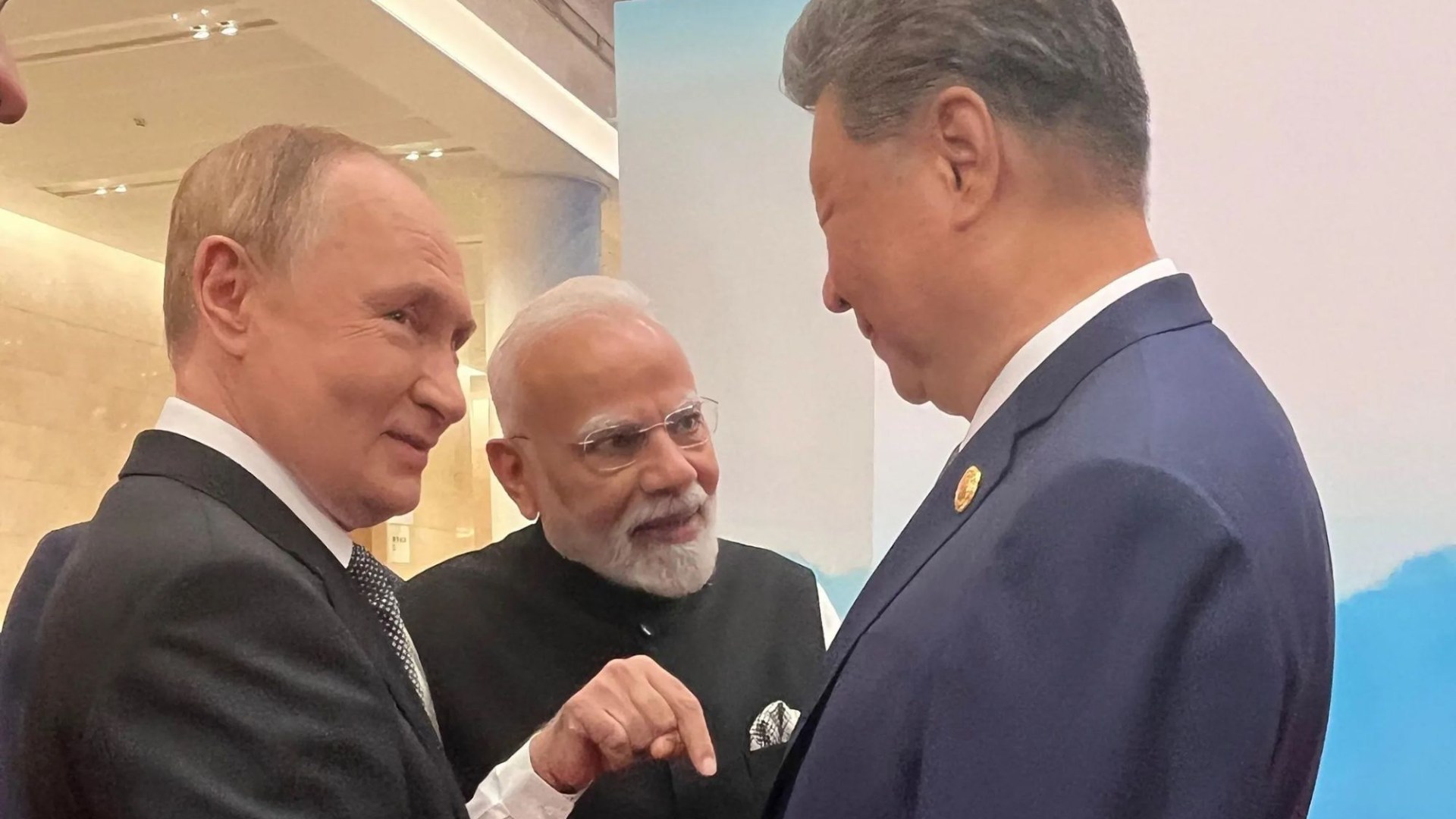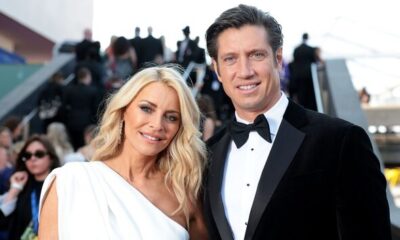Politics
Putin, Modi, and Xi Unite at Summit, Shifting Global Power Dynamics

An image from the recent summit in China featuring Russian President Vladimir Putin, Indian Prime Minister Narendra Modi, and Chinese President Xi Jinping has raised concerns among Western leaders about a shifting global power dynamic. The three leaders met during the Shanghai Cooperation Organisation (SCO) summit, signaling a potentially stronger alliance among nations outside the Western sphere.
The photograph of the trio, taken on October 16, 2023, illustrates a united front that could reshape international relations. Putin, who faces charges for war crimes, and Xi, the head of the world’s largest authoritarian regime, were seen alongside Modi, who has faced accusations of authoritarian tendencies himself. Their gathering has sparked fears that the influence of Western nations is waning as these leaders align their interests.
Historically, relations between India and China have been strained, particularly given territorial disputes such as the ongoing tensions over Kashmir. The recent summit, hosted by Xi, suggests a thawing of relations that could signify a new geopolitical axis. With a combined population exceeding 2.8 billion, the SCO, which includes countries like Russia, Belarus, Iran, and Pakistan, now represents approximately 40 percent of the global populace.
Military expenditures among these nations are on the rise, with Modi committing approximately £65 billion to defense, while Xi’s spending is significantly higher at £235 billion. This increase in military investment, alongside discussions of reducing reliance on the US dollar for trade, indicates a strategic shift towards greater cooperation among non-Western countries.
Despite the apparent camaraderie, the relationship between India and China remains fragile. Economic disparities exist, with Russia’s economy struggling compared to China’s burgeoning power. Furthermore, India remains wary of China’s influence in Pakistan, its primary geopolitical rival. The tensions that have historically defined Sino-Indian relations—including border skirmishes and differing regional ambitions—continue to pose potential flashpoints for conflict.
While Modi’s presence at the summit may appear to strengthen ties with Russia and China, it also serves to assert India’s independence on the global stage. The Indian Prime Minister has maintained a stance of non-alignment, even as the United States attempts to engage India amid rising tariffs and trade tensions. Reports indicate that the Biden administration has made several overtures to Modi’s government, hoping to foster closer ties, but these efforts have not yet yielded significant results.
The implications of these developments extend beyond the immediate relationships between India, Russia, and China. The potential for a more cohesive bloc among these nations raises questions about the future of global governance. The SCO aims to establish its own development bank to rival institutions like the World Bank and the International Monetary Fund, further indicating a desire to create alternatives to Western-dominated financial systems.
In light of these dynamics, Western nations must reassess their approach to India. As the world’s most populous democracy, India holds considerable economic leverage with its exports to the US far exceeding those to any other country. Recent trade agreements, including a deal struck by UK Labour leader Sir Keir Starmer and ongoing negotiations for a free trade agreement with the EU, highlight the importance of strengthening ties with India to prevent it from becoming overly reliant on Russia or China.
As the geopolitical landscape evolves, the need for Western nations to engage India constructively becomes increasingly apparent. The shifting allegiances reflect broader trends that challenge the post-Cold War order and require a nuanced understanding of emerging global alliances. The recent summit represents a critical juncture that could redefine international relations for years to come, with long-lasting implications for global stability and security.
-

 Entertainment3 months ago
Entertainment3 months agoAndrew Pierce Confirms Departure from ITV’s Good Morning Britain
-

 Health6 months ago
Health6 months agoFiona Phillips’ Husband Shares Heartfelt Update on Her Alzheimer’s Journey
-

 Health6 months ago
Health6 months agoNeurologist Warns Excessive Use of Supplements Can Harm Brain
-

 Entertainment3 months ago
Entertainment3 months agoGogglebox Star Helena Worthington Announces Break After Loss
-

 Science5 months ago
Science5 months agoBrian Cox Addresses Claims of Alien Probe in 3I/ATLAS Discovery
-

 Science4 months ago
Science4 months agoNASA Investigates Unusual Comet 3I/ATLAS; New Findings Emerge
-

 Entertainment4 months ago
Entertainment4 months agoTess Daly Honoured with MBE, Announces Departure from Strictly
-

 World2 months ago
World2 months agoEastEnders Welcomes Back Mark Fowler Jr. with New Actor
-

 World4 months ago
World4 months agoBailey and Rebecca Announce Heartbreaking Split After MAFS Reunion
-

 Entertainment8 months ago
Entertainment8 months agoKerry Katona Discusses Future Baby Plans and Brian McFadden’s Wedding
-

 Health1 month ago
Health1 month agoSue Radford Reveals Weight Loss Journey, Losing Two Stone
-

 Science4 months ago
Science4 months agoScientists Examine 3I/ATLAS: Alien Artifact or Cosmic Oddity?








